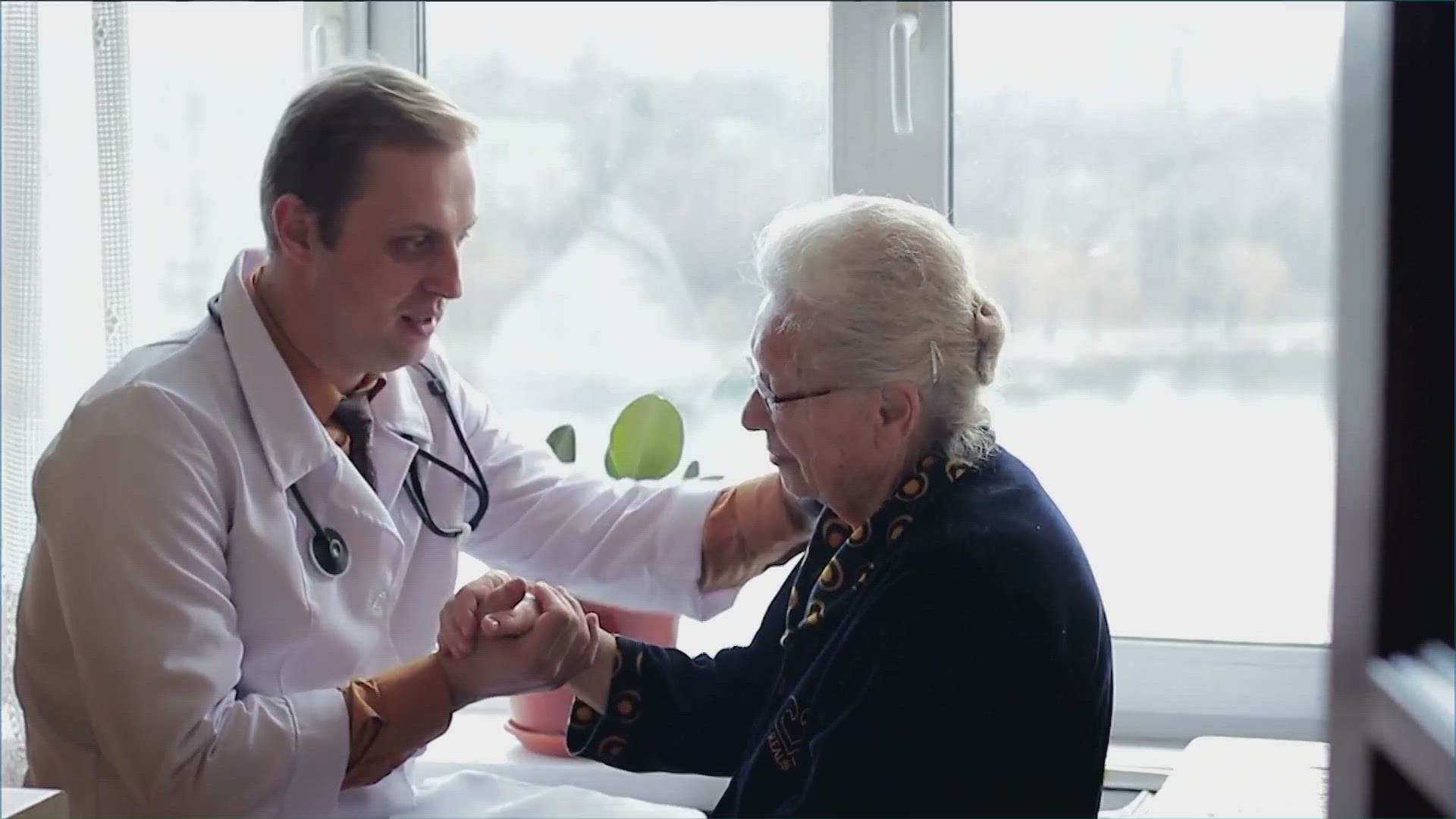AUSTIN, Texas — Most of the country will lose an hour of sleep on Sunday with daylight saving time. Sleep pattern changes, like those we experience during daylight saving time, have been shown to affect different aspects of our physical and psychological health, including our brain health.
In fact, research is published regularly that suggests poor sleep, like sleep apnea and insomnia, may increase our risk for dementia, while getting regular healthy sleep may reduce our risk of the disorder.
Andrea Taurins, executive director at the Alzheimer’s Association Capital of Texas Chapter, said people living with dementia and their family caregivers often experience changes in sleep patterns, wandering and regular bouts of insomnia. This can be exhausting and stressful for everyone involved.
"They may wake up more often. They may stay awake more at night. They may become restless or agitated in the evenings. Many people know that is sun-downing and that can affect their sleep," Taurins said.
But she said there are effective ways to manage sleep issues and steps that caregivers can take.
"Things like keeping the home less well lit – so where, you know, the difference is and when it gets dark and light isn't as noticeable, they can avoid taking naps during the day so that they are sleeping better at night and getting that deeper sleep," Taurins said.
It's also recommended to have a schedule that someone with Alzheimer's and dementia can do better at following. Adhering to a regular schedule of when they eat, when they wake up, when they go to bed could help patients sleep more and have a more restful sleep at night.
"Not drinking caffeine – some of the same things that we would do ourselves if, you know, to help our own sleep, is going to be beneficial for those with Alzheimer's and dementia, having more activities during the day and that can have them be more tired," Taurins said.
Taurins said it's very important for caregivers to also be mindful of their own rest and their own mental and physical health – and the exhaustion that they may feel. It's crucial to make sure that caregivers are getting their best sleep so that they can care for their loved one with Alzheimer's or dementia.
"If the person that you're caring for with Alzheimer's and dementia is awake and upset and confused, approaching them or asking them if there's something that they need help with, reminding them of what time it is, they may not even realize what time it is. And try not to argue with them, but just reassure them that everything is OK," Taurins said
For those needing help and support, the Alzheimer's Association offers a 24/7 hotline for those needing assistance at 1-800-272-3900. More available resources can be found here.

